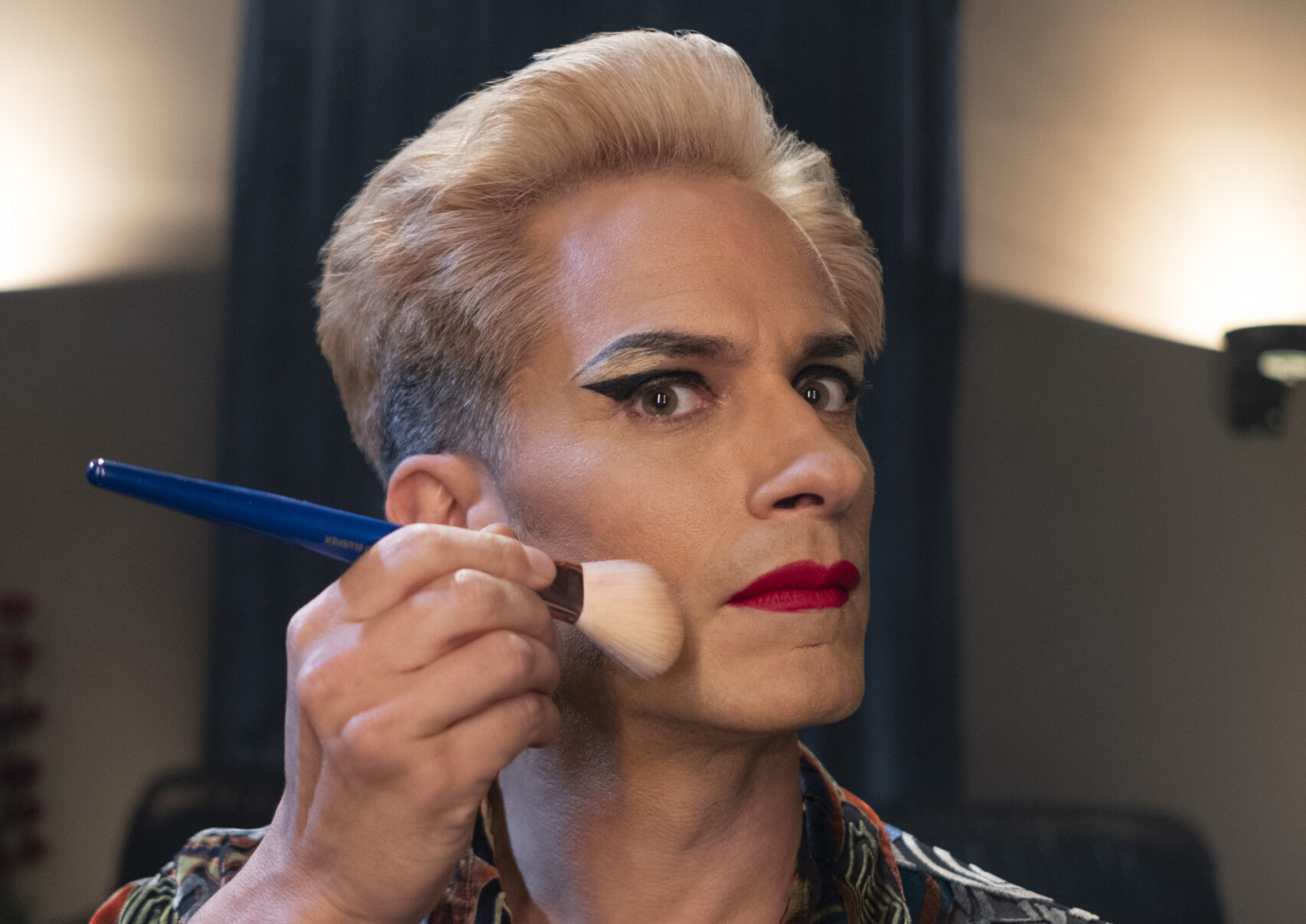Defiant, queer joy is a liberating force. Early in Cassandro, the biopic of the lucha character of the same name, we see this in the ring: one of our wrestler’s early matches is underway and despite the jeering crowd tossing slurs in Spanish and demanding blood, Cassandro (Gael García Bernal) seems unphased. He vamps it up, a part of the whole exótico persona of course, but the showmanship of the fight has a defiant dimension because Saúl Armendáriz, the man beneath the spandex, is an out gay man – a rarity for exóticos at the time. The result is a small, deeply moving moment that encapsulates queer femme resistance: being implicitly hated by the world but continuing anyway. It’s also a moment that pays off later in the film when a young gay man tells Cassandro/Saul he was able to come out to his family because of him.
Cassandro handles these moments deftly, fitting quiet and thoughtful scenes of its main character and his loved ones between fighting montages and set pieces. It’s a well-made, moving, and sweet biopic that touches on many interesting ideas about gender and performance, making for a compelling watch even if it could have gone deeper.

Born in El Paso, Texas, Saúl started his career as a masked fighter but eventually took a friend’s advice and became an exótico – an effeminate, queer-coded villain type in lucha libre. Exóticos aren’t supposed to win their matches – their role is to lose and reaffirm the superiority of ultra-masculine fighters they’re up against. The film follows the rise of Cassandro through his match with El Hijo de Santo (played by himself in the film), charting his transformation and rise in the lucha libre world.
The film is bolstered by a lovely cast, led by a luminous Bernal, reminding everyone what stardom looks like in his performance as Armendáriz. Bernal is as compelling as ever, bringing an instant charisma and playful charm to every fight scene, chemistry with his castmates, and a deep determination and passion to the more intimate moments of the film. Much has been made of Bernal’s co-star, Benito Martínez (AKA Bad Bunny), and while he does a decent job with the scenes he’s given, fans expecting a meatier role for everyone’s favorite conejito might be disappointed.
The remainder of the cast is rounded out by great supporting players such as Raúl Castillo as Gerardo, a love interest of Saul’s whose internalized homophobia keeps the pair at an uncomfortable distance. Castillo does a great job of taking the internal contradiction of someone like Gerardo, who wants to be with a partner they love, but is stopped by their own fear and machismo. Perla De La Rosa as Yocasta, Saul’s mother, is another great embodiment of very human contradictions: she’s accepting and clearly loves her son, but also blames him for his father’s departure from the family after Saul came out. Finally, Roberta Colindrez as Cassandro’s trainer, a fellow luchadora named Sabrina, shines too, offering a supportive view into larger queer life.

Cassandro’s cast does the bulk of the work here, uplifting a script that touches on themes like gender as performance, being femme and gay in a machista culture, and unaccepting parents, but never dives deeper than a cursory look. It’s a good start that has many beautifully impressionistic moments. A lot of scenes can be a jumping-off point for larger conversations about the homophobia and misogyny in Mexican and Tejane culture, but perhaps with a longer runtime and a more focused script, we could have gotten something a little more in-depth. A great thing about the storytelling, however, is the matter-of-fact nature of border town life and the unique nature of that culture in general. Saul lives in El Paso but crosses over frequently for matches or training, and the movie treats this as an everyday, normal thing because it is for so many people. As someone from a border town, I appreciated this nuance and attention to detail.
Cassandro is worth a watch, not just for its undeniable turn from Bernal, but because of its moments of defiant, queer joy in the face of so much homophobia. It may not be a perfect film, but it’s one that can’t help but shine, flaws and all.

